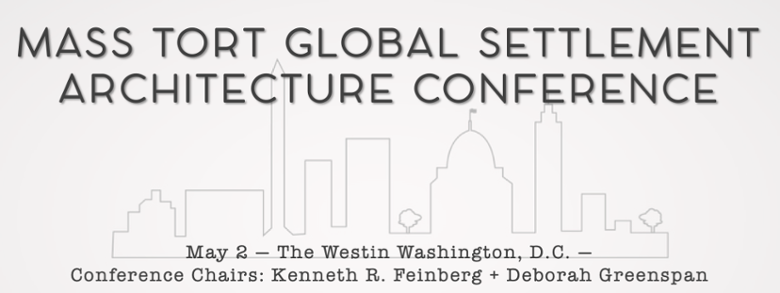
Stock image.
Fort Lauderdale, FL—A Florida state court jury hit the nation’s two largest tobacco companies with a $37 million total damage award for the role it found the companies played in a woman’s death after losing a lung to cancer. Mahfuz v. R.J. Reynolds and Philip Morris, 2007-CV-036743.
The award includes $12 million in compensatory damages for the 1999 death of Rita Mahfuz, as well as $10 million in punitives imposed against R.J. Reynolds, and $15 million imposed against Philip Morris.
Mahfuz, a two-pack-a-day smoker for more than 30 years, died seven years after doctors diagnosed her with cancer and removed her right lung. Mahfuz’s husband, Richard, contends his wife died from complications related to the loss of her lung and smoking-related respiratory disease, or COPD. He claims the companies’ part in a sweeping scheme to hide the dangers of smoking through much of the 20th century hooked his wife to cigarettes and ultimately killed her.
Mahfuz's attorneys had sought up to $42 million, including $12 million in compensatories, and $15 million in punitives against each company, during the trials closings.
The case is one of thousands stemming from a 2006 Florida Supreme Court decision decertifying Engle v. Liggett Group Inc., a class-action tobacco suit originally filed in 1994. Although the state’s supreme court ruled that Engle-progeny cases must be tried individually, it found plaintiffs could rely on certain jury findings in the original case, including the determination that tobacco companies had placed a dangerous, addictive product on the market and had conspired to hide the dangers of smoking through much of the 20th century.
In order to be entitled to those findings, however, each Engle progeny plaintiff must prove the smoker at the heart of their case suffered from nicotine addiction that legally caused a specific smoking-related disease.
During the the 11-day first phase of the Mahfuz trial, on class membership, opposing sides battled over whether Mahfuz was addicted to nicotine and what role her smoking decisions played in her illness.
The defense contended Mahfuz knew of smoking’s dangers did not truly wish to quit until her cancer diagnosis. During closings last Thursday, King & Spalding’s Jeffrey Furr, representing Reynolds, pointed to evidence he said showed Mahfuz smoked by choice, not because of addiction. And he reminded jurors family members and friends had warned her of smoking’s risks for years. Furr added Mahfuz continued smoking even after her husband stopped in the 1970s. “He’s here today as a 78-year old because he chose health,” Furr said. “Rita chose to continue smoking.”
But Richard Mahfuz’s attorney, Steven Hammer, of Schlesinger Law Offices P.A., told jurors expert testimony and other evidence showed Mahfuz, who failed in multiple quit attempts before quitting for good, was hooked on nicotine. Hammer contended addiction undercut any choice Mahfuz had regarding her smoking. “There’s not one piece of evidence from either side that Rita’s addiction was her choice,” Hammer said. “Because nobody chooses addiction.”
After the finding of class membership and the jury’s $12 million award in compensatories, the punitive phase of trial turned to whether the tobacco companies’ conduct over the last 20 years mitigated against punishment for their parts in hiding the dangers of smoking for decades.
During closings of the trial’s punitive phase on Wednesday, Shook Hardy’s Hildy Sastre, representing Philip Morris, argued the tobacco industry of today was now more regulated and transparent than the years when Mahfuz was a smoker. Sastre reminded jurors of evidence that the industry was now overseen by the U.S. Food and Drug Administration and will pay out billions of dollars as part of a settlement agreement with states’ attorneys general across the country. Meanwhile, she said, Philip Morris severely restricted its marketing of cigarettes. "The Philip Morris of today is a different company,” Sastre said. “The Philip Morris of today operates in a different environment, with different people, different management.”
But Richard Mahfuz’s attorney, Jonathan Gdanski, of Schlesinger Law Offices P.A., said evidence of the companies’ involvement in hiding the dangers of smoking showed they had “lost their moral compass.” And he contended they had not done enough to acknowledge their conduct of the past. “You have a chance today to punish them, and speak to them in the only term that they understand,” he said. “Money.”
The Mahfuz award is the largest CVN-covered Engle progeny verdict in a year. In February of 2018, another jury in Fort Lauderdale awarded $41.7 million to a Florida woman who claimed R.J. Reynolds was responsible for the respiratory disease that forced her to undergo a lung transplant.
Email Arlin Crisco at acrisco@cvn.com.
Related Information
Richard Mahfuz is represented by Schlesinger Law Offices P.A.’s Steven Hammer and Jonathan Gdanski.
R.J. Reynolds is represented by King & Spalding’s Kathryn Lehman and Jeffrey Furr.
Philip Morris is represented by Shook Hardy & Bacon’s Hildy Sastre.
Not a subscriber?
Learn how you can watch high-stakes trials across the country.





